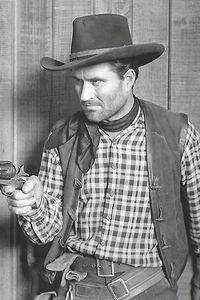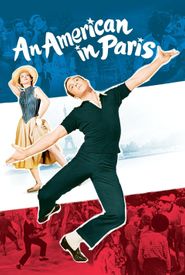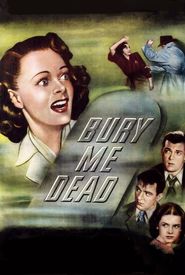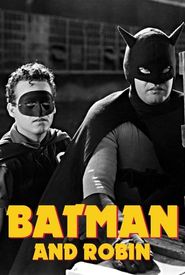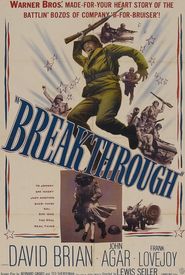Dale D'Orr, born on April 5, 1915, in Atlanta, Georgia, was destined to make a lasting impression in Hollywood as a ruggedly handsome leading man. His early life was marked by his parents' divorce when he was just 12 years old, and his stepfather, pulp fiction writer Walter Easton, would later influence his name change.
Growing up in Oakland, California, Dale's interest in acting led him to scout out stage and film extra work, eventually landing non-speaking soldier roles in films such as The Iron Major (1943) and See Here, Private Hargrove (1944). A surprising change in his career came when he auditioned for the lead role in the Bing Crosby-produced film The Great John L. (1945),earning him the marquee name "Greg McClure" for the Irishman's part.
Greg's nascent leading man career stalled when he was suddenly drafted into the Army shortly after the film's release. Upon his honorable discharge, he continued to freelance, supplementing his acting career by running a gym that attracted several film stars as clients. Later notable roles included brutish boxers in films such as Bury Me Dead (1947),Lulu Belle (1948),Joe Palooka in the Big Fight (1949),and Roaring City (1951); the role of "Hammerhead" Hogan in the action-adventure film Thunder in the Pines (1948); a henchman in the Batman and Robin (1949) serial; a featured role in the Cold War espionage film Sky Liner (1949); one of the infamous Daltons in The Dalton Gang (1949); and a private in the war drama Breakthrough (1950).
However, his acting career was cut short in 1951 when it became known that he was a Communist sympathizer. In later years, Greg found varied jobs as a soft drink executive, produce market manager, carpenter, and handyman. He moved in with one of his four daughters from his first marriage after his second wife's passing and lived until the age of 97, passing away on December 7, 2012.
